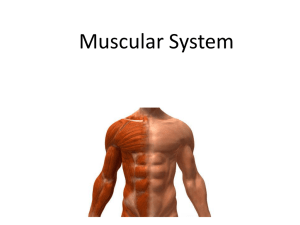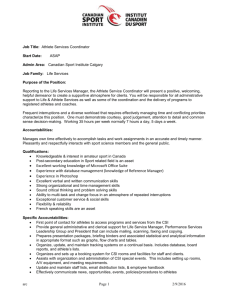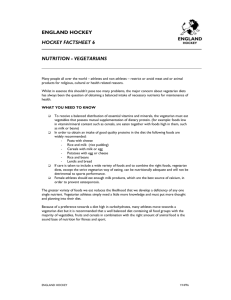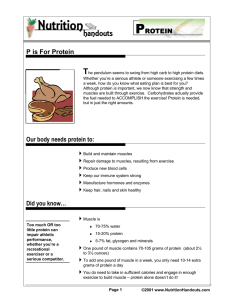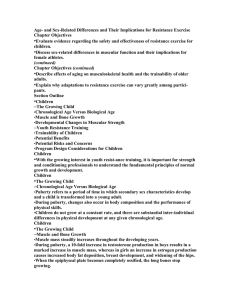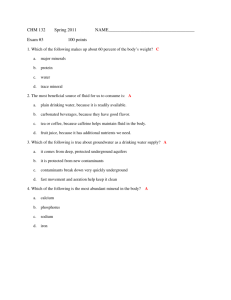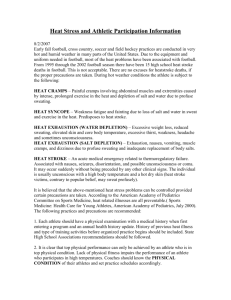Protein and muscle building
advertisement
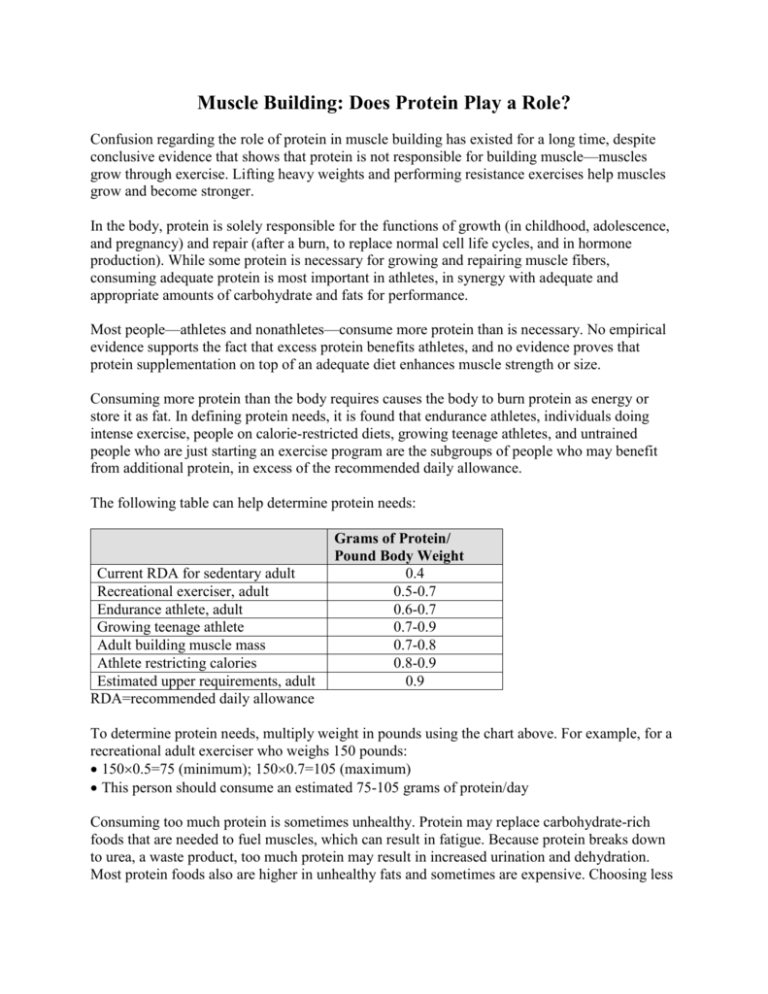
Muscle Building: Does Protein Play a Role? Confusion regarding the role of protein in muscle building has existed for a long time, despite conclusive evidence that shows that protein is not responsible for building muscle—muscles grow through exercise. Lifting heavy weights and performing resistance exercises help muscles grow and become stronger. In the body, protein is solely responsible for the functions of growth (in childhood, adolescence, and pregnancy) and repair (after a burn, to replace normal cell life cycles, and in hormone production). While some protein is necessary for growing and repairing muscle fibers, consuming adequate protein is most important in athletes, in synergy with adequate and appropriate amounts of carbohydrate and fats for performance. Most people—athletes and nonathletes—consume more protein than is necessary. No empirical evidence supports the fact that excess protein benefits athletes, and no evidence proves that protein supplementation on top of an adequate diet enhances muscle strength or size. Consuming more protein than the body requires causes the body to burn protein as energy or store it as fat. In defining protein needs, it is found that endurance athletes, individuals doing intense exercise, people on calorie-restricted diets, growing teenage athletes, and untrained people who are just starting an exercise program are the subgroups of people who may benefit from additional protein, in excess of the recommended daily allowance. The following table can help determine protein needs: Current RDA for sedentary adult Recreational exerciser, adult Endurance athlete, adult Growing teenage athlete Adult building muscle mass Athlete restricting calories Estimated upper requirements, adult RDA=recommended daily allowance Grams of Protein/ Pound Body Weight 0.4 0.5-0.7 0.6-0.7 0.7-0.9 0.7-0.8 0.8-0.9 0.9 To determine protein needs, multiply weight in pounds using the chart above. For example, for a recreational adult exerciser who weighs 150 pounds: 1500.5=75 (minimum); 1500.7=105 (maximum) This person should consume an estimated 75-105 grams of protein/day Consuming too much protein is sometimes unhealthy. Protein may replace carbohydrate-rich foods that are needed to fuel muscles, which can result in fatigue. Because protein breaks down to urea, a waste product, too much protein may result in increased urination and dehydration. Most protein foods also are higher in unhealthy fats and sometimes are expensive. Choosing less meat and fewer protein-rich foods means you will have more room for fruits, vegetables, and complex carbohydrates. For vegetarian athletes and individuals who are restricting calories, it is essential to incorporate protein in the form of beans, nuts, legumes, tofu, and plant proteins into the diet. Insufficient protein in the diet also is dangerous and may lead to iron, zinc, and calcium deficiencies. The bottom line remains that the body cannot store amino acids or protein and uses only what it needs. It is not beneficial to consume extra protein. Single amino acids that are taken as supplements, such as creatine, arginine, or ornithine, do not contribute to a muscle-building effect. Because most American diets typically contain enough or too much protein already, health care professionals should not advise athletes to consume more protein than they need. References and recommended readings Christie C, ed. Florida Dietetic Association Manual of Medical Nutrition Therapy. Tallahassee, FL: Florida Dietetic Association; 2012. Dorfman L. Nutrition in exercise and sports. In: Mahan LK, Escott-Stump S, Raymond JL. Krause’s Food and the Nutrition Care Process. 13th ed. St Louis, MO: Elsevier Saunders; 2012:507-530. Review Date 3/14 G-0851
